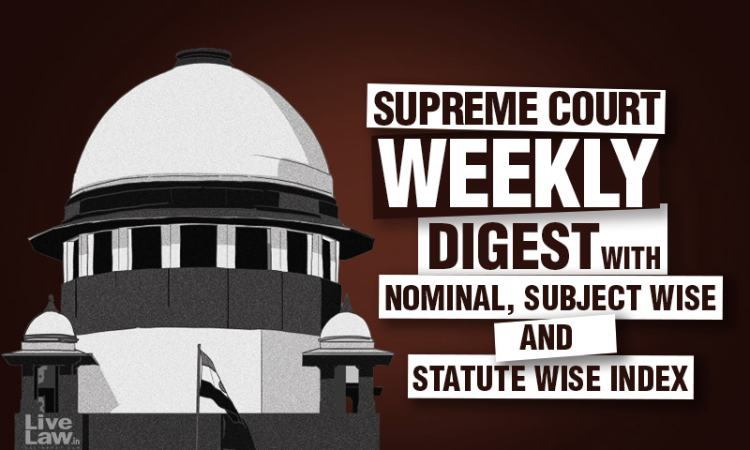Supreme Court Weekly Digest With Nominal And Subject/Statute Wise Index- April 11 to 17
LIVELAW NEWS NETWORK
18 April 2022 12:36 PM IST

Next Story
18 April 2022 12:36 PM IST
Administrative Law - For holding the action of the Executive to be arbitrary, there must be a factual basis. (Para 13) State of Maharashtra v. Shaikh Mahemud, 2022 LiveLaw (SC) 363 Administrative Tribunal Act, 1986 - Appeal against Jammu and Kashmir High Court judgment setting aside the Full bench judgment of Central Administrative Tribunal - Dismissed - We are in complete...
